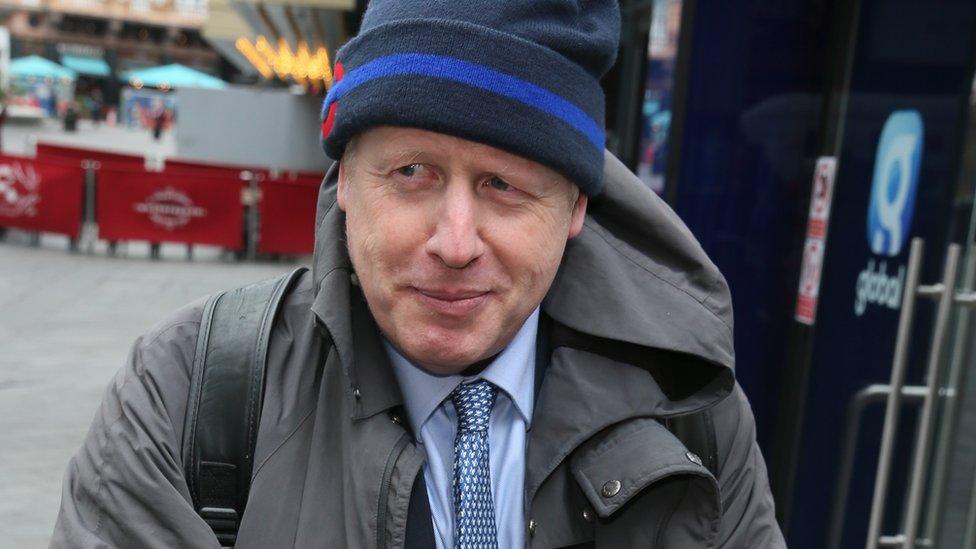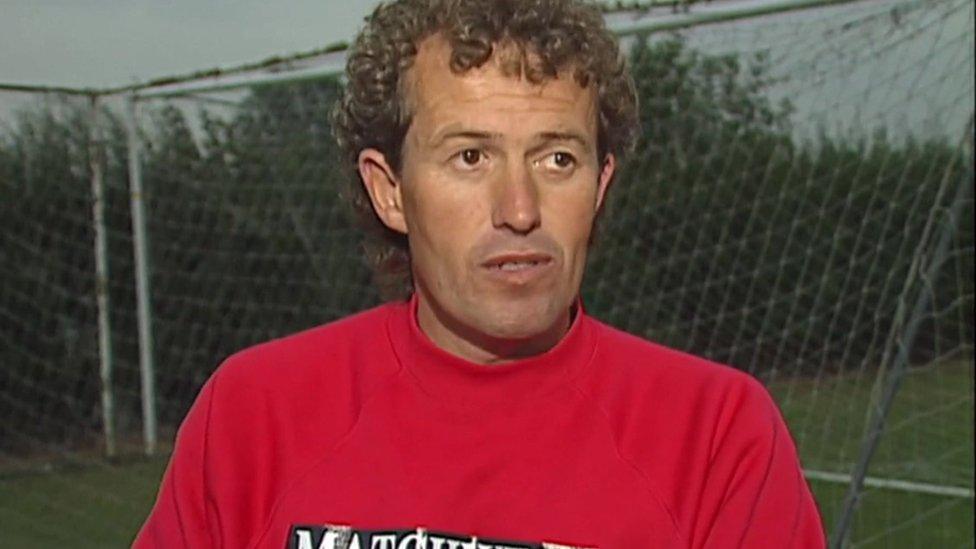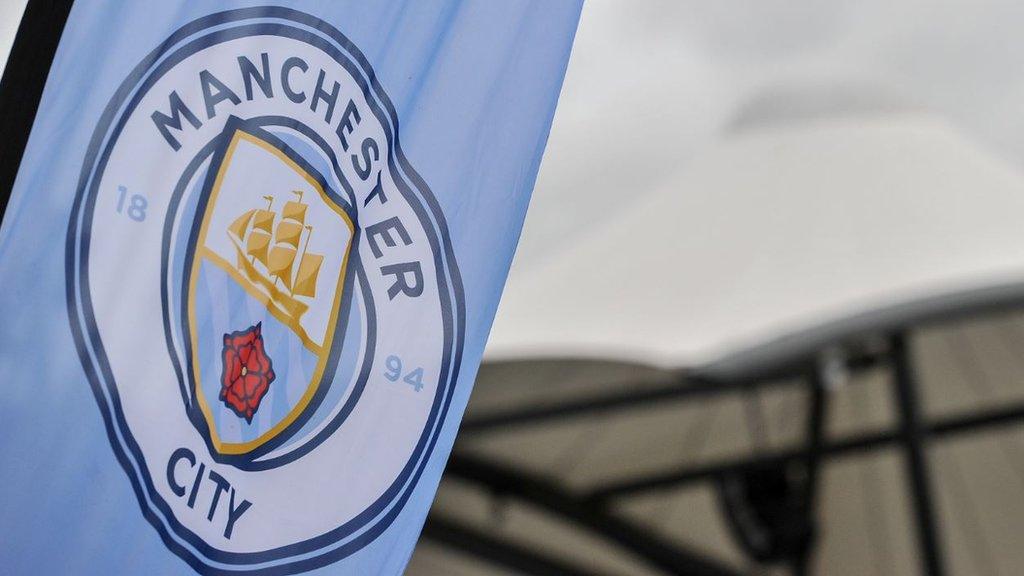Boris Johnson historical child sex abuse comments 'horrific'
- Published

Boris Johnson was speaking to radio station LBC about police numbers and investment
Child sex abuse victims have criticised Boris Johnson for claiming police funding was being "spaffed up the wall" investigating historical allegations.
The Tory MP said in an interview with LBC that "an awful lot of police time" was spent looking at "historic offences and all this malarkey".
One victim, Gary Cliffe, said the comments were "horrific".
Children's charity NSPCC said the former London mayor's remark was an "affront to victims".
Mr Cliffe, who was a victim of Barry Bennell when the serial paedophile youth coach ran junior clubs linked to Manchester City, added: "Mr Johnson needs educating on both child sex abuse and policing."
Chris Unsworth, director of the Offside Trust, the organisation set up by survivors of child sexual abuse in football in the wake of the football abuse scandal, said Mr Johnson's comments were "ignorant, dangerous, disgraceful and unbelievably distasteful".
"Not only has he caused untold upset and offence among survivors and their families affected by child abuse, he has failed to understand that learning mistakes from the past is critical to keeping our children today safe.
"Boris Johnson clearly has no understanding whatsoever of the issues involved. On behalf of the thousands of people impacted by child abuse we demand an apology."

Barry Bennell ran summer holiday camps in the UK - including at Butlin's
SAVE Association, which was also founded by men who were victims of childhood sexual abuse, called Mr Johnson's comments "insensitive and ill-informed".
A spokesman said: "These investigations allow us to learn and ultimately have been successful in incarcerating some of society's most abominable monsters.
"Johnson should learn to keep his mouth well and truly shut when it comes to subjects he simply knows nothing about. Child sexual abuse is definitely one of those subjects.
"When talking about spaffing money up the wall, can I remind Johnson of the colossal amount he spent in the London Garden bridge fiasco or the water cannons debacle."

What did Johnson say?
Mr Johnson was speaking to the radio station about police numbers on the streets and investment.
"Keeping numbers high on the streets is certainly important. But the question is where you spend the money and where you deploy the officers," he said.
"One comment I would make is that I think an awful lot of the money, an awful lot of police time, now goes into these historic offences and all this malarkey - £60m I saw was being spaffed up the wall on some investigation into historic child abuse and all this kind of thing.
"What on earth is that going to do to protect the public now? What the people want is to see officers out on the streets doing what they signed up to do."

Mr Johnson did not make clear which investigation he was referring to, according to BBC's home affairs correspondent Danny Shaw.
Our correspondent says the £60m figure Mr Johnson quoted roughly equates to the cost of the first four years of the child sexual abuse inquiry, which was set up in 2014 by the then Home Secretary Theresa May.
Staffordshire's chief constable, Gareth Morgan, said Mr Johnson's remarks were "wrong on so many levels".
The NSPCC said: "Bringing child abuse perpetrators to justice is not a 'malarkey' and such crass language is an affront to victims who have suffered in silence for decades."
Rival politicians have also criticised Mr Johnson, with shadow police minister Louise Haigh tweeting: "Could you look the victims in the eye and tell them investigating and bringing to justice those who abused them, as children, is a waste of money? You shameless, dangerous oaf."
Allow X content?
This article contains content provided by X. We ask for your permission before anything is loaded, as they may be using cookies and other technologies. You may want to read X’s cookie policy, external and privacy policy, external before accepting. To view this content choose ‘accept and continue’.

The background
The National Police Chiefs' Council (NPCC) set up Operation Hydrant, external in 2014 to oversee investigations of "non-recent" child sex abuse within institutions or by people of public prominence.
Football became an area of focus in 2016 after several former players came forward publicly to tell their stories and the NSPCC set up a dedicated football abuse hotline.
Subsequent police investigations have helped to convict a number of paedophiles, including Bennell, who was last year convicted of 43 charges relating to 12 former junior players between 1979 and 1990 during his time working for Manchester City and Crewe Alexandra.
The Football Association has also set up an independent investigation into the issue, with FA chairman Greg Clarke calling the football child sex abuse scandal one of the biggest crises in the history of the game.
- Attribution
- Published12 March 2019
